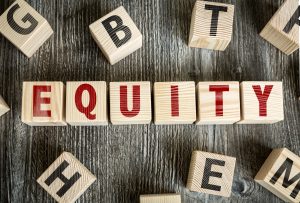The TDSB lottery for admission to specialized programmes did NOT fail students
The TDSB no longer engages its communities; it issues pronouncements from Supervisor Rohit Gupta about his latest decisions on behalf of Paul Calandra’s Ministry of Education (MOE). They flutter down from the dark tower of the Board: bits of paper, unhindered by trivialities like explanations or any hint of discussion.
Late in October, the TDSB gracelessly announced:
“Based on direction from the Supervisor appointed at the TDSB by the Minister of Education, the decision has been made to change the application and admission process for Specialized Programs…”
That’s all folks! The Central Student Interest Programme (CSIP) that had taken years of study and consultation to develop, disappeared under a cloud of dust and animosity towards anything that smacks of Diversity, Equity and Inclusion (DEI). The lottery-based admission to specialized TDSB programmes made room for underrepresented racial and economic groups to get an equitable shot at entering popular schools highlighting the arts, math, science and athletics. That just doesn’t cut it in a world where competition, mediated by privilege, rules.
The Minister himself weighed in:
“The previous lottery system failed students who worked hard to earn their place. Restoring a fair admissions process based on merit is about ensuring students’ achievements are recognized. These changes will help ensure every student can reach their full potential and that excellence remains at the centre of Ontario’s education system.” (emphasis added)
Merit? What does that mean? That the kids who merit interesting programmes work harder than other kids, are smarter, faster, sing more, dance better think more deeply or whatever? Maybe Calandra means, that like his fellow Tories, they’re just more deserving than the kids who don’t make the grade. It’s time to go back to a system that gives them a leg up.

So, he has decided to march backwards. Now, to demonstrate merit, students looking to join a special secondary school programme must meet the Provincial Standard for report cards (70%) in most subject areas. Through a portfolio, audition or interview, they must demonstrate their knowledge and skills related to the programme that might teach them more of what they’re already good at. They have just between November 24 and December 12 to submit their applications. Of course, they won’t have trustees to help them with the process or go to bat for them because they’ve been dismissed by the government making these changes.
Calandra, the Minister currently in charge of starving public education in Ontario told John Moore from Newstalk 1010 that if kids face challenges making the grade, “we’ll tackle it (sic) early on in elementary schools so that more students can be prepared to apply to these programmes.” 1
Ridiculous! Of course, MOE won’t tackle challenges faced by kids in elementary school or anywhere else. The TDSB was taken over because its last budget fell short of MOE’s austerity diktats. Even then, it struggled to maintain some semblance of outdoor education, special education, pools, swim programmes and itinerant music.2 This is an annual ritual. In the 2019-20 budget for instance, the Board cut back international languages, the International Baccalaureate (IB) programme, itinerant music instructors, outdoor education, school budgets and student support services. Calandra’s promises carry as much weight as Attila the Hun proffering tea and biscuits.
What’s this all about?
Though it took nothing to kill the Central Student Interest Programme (CSIP) it was a long slog to get it off the ground. In December 2017 the Enhancing Equity Task Force recommended the TDSB do more to ensure equitable access to programmes, experiences, funding and opportunities for all students in all schools. It was clear from Board-wide consultations with students, staff and families around this time that – no surprise – many students faced barriers to getting into specialized schools and programmes that might do them a lot of good.
The TDSB needed to walk the talk of equity. Specialty schools like Rosedale Heights or Etobicoke School for the Arts were fine schools. But they weren’t easy to get into. Students needed to put together a portfolio, audition or some other application package to be judged on that illusory term: merit. As Trustee Debbie King explained to me, Black, Latinx, Brown and others were underrepresented in these programmes. On the other hand, Black students historically, have been suspended at a rate three to four times that of their representation in the overall TDSB population.
Around the same time, an Ontario Institute for Studies in Education (OISE) study3 of a TDSB special arts programmes found them to be “homogeneous” compared to regular schools across the Board– not a sign of good health in a multicultural school board. Students entering these programmes in Grade 9 were disproportionately White; 67% of them self-identified that way; yet their numbers represented just over 29% of elementary students across the TDSB. Conversely, kids who self-identified as Black represented 11% of students in elementary schools but only 4% of those attending these arts programmes in Grade 9. Affluence and parent education entered the mix as the proportion of kids in the arts programmes rose with family income and university backgrounds.
Both Trustees King and Michelle Aarts spoke about the importance of money and background for putting together a portfolio of artwork, prepare for a dance or music audition or tutoring for a specialized programme. Tutors, coaching and lessons don’t come cheap and for families facing tightened circumstances, may not be available at all. Word of mouth made a difference too. Kids coming from schools near those of their friends already in special programmes knew that the opportunity was there for them to grab. That wasn’t the case for others in TDSB schools; students and families didn’t know about them.
There were other problems with the specialized schools. According to Trustee Aarts, they weren’t well-distributed across the TDSB; some were just too far away from local neighbourhoods. Some screened out special education students, some viewed arts from a purely Eurocentric perspective – dance meant ballet, music meant symphony.
Enter the CSIP
Something needed to be done. In May 2022 TDSB trustees voted 17-3 to enact the Central Student Interest Programme (CSIP)4. This policy addressed both the central secondary programmes and requirement for local secondary schools to meet the needs of their students.
The critical change here was in the title: “Central Student Interest Programme.” Specialized programmes didn’t need to be a conduit to a higher-level programme outside of public education, nor were they meant to provide a resume for a post-secondary application or a career.
They were programmes to give kids equitable access to the world of different interests– nothing complicated. Where previously specialized schools for the arts, science, technology and athletics were seen as elite and containing marketable value for enrolled kids and their families, an “interest” programme could be open to students just wanting to broaden their horizons.
Students would no longer need to pay application fees, turn in report card marks, sit an entrance exam, pass a performance task or take part in an audition. Instead their applications to such programmes would entail some way of expressing interest, creativity and in the case of athletics programmes, practice records and letters from coaches. So, commitment and interest were the criteria. A random selection of kids who showed an interest ensued – with priority given to students from underserved communities. That criteria would be evaluated from year to year.

What came of it
Not everyone was happy. Some parents and students were disappointed that the hard work put into applications and auditions came to nought. Others, including trustee Dan McLean worried that capable students wouldn’t make the cut in a lottery system. He called for more spaces to accommodate those kids. Others argued that programmes would be watered down to suit less talented students – “lottery kids” as they are called by other students according to both Trustees Aarts and King.
Yet things were looking up. In her presentation to Rosedale Heights School Council last February, Trustee Deborah Williams compared 2020 and 2023 TDSB enrollment data to show changes brought about by the CSIP. Access increased for Black, Latinx, Indigenous and Middle Eastern students. It also increased for children of lower income families. Students in specialized programmes began to reflect their numbers in the TDSB population.5
As the TDSB got ready to review the CSIP, staff presented a literature review to trustees in May 2024 that pointed out concerns of merit-based admissions criteria for specialized programmes. One key point was that dominant cultures within a system define what merit means and limit relevant approaches to teaching6.
But I guess a lengthy and positive review and promise to collect more data just didn’t cut it with someone who had his mind made up. Paul Calandra said he was receiving a lot of calls and complaints about the SIPP: “… I thought the best approach would be to go back to a merit-based system.”
Just in case someone might want to look up the policy behind the programme, it’s gone too. The link to it on the TDSB website has been cut, excised from public memory.
It isn’t just that politics trumps public good – as it has here. It’s that it supports, as Trustee Debbie King insists, underfunding of public education and an underlying reality of racism and bias in the system. Though the situation has improved over the past decade, Black students are still suspended at a rate twice their percentage of TDSB enrollment. What do you call it when a programme meant to equitably include diverse groups of young people is peremptorily shut down – in the same way that trustees of four school boards were removed? Why does this happen without any other explanation than “I got complaints?” Decisions like these come with the same amount of forethought from the Ford government as removing bike lanes, shutting off speed cameras and giving millions of dollars from its Skills Development Fund to a company with a Tory vice-president. The big question is always: “Who is really gaining from this decision?”
This is another example of the small steps that authority takes when it wants to quash improvements, when it wants to undermine DEI and ensure that Ontario remains a system based, not on merit but on privilege. As Trustee Deborah Williams explained: “Scrapping the student-interest based model without warning and replacing it with a system that privileges students with private resources is not reform. It’s regression.”

Notes:
- Paul Calandra interview: Moore in the Morning, October 22, 2025. Time frame: 22:13
- TDSB Budget presentation: June 18, 2025. Time frame: 1:45
- Market “Choices” or Structured Pathways? How Specialized Arts Education Contributes to the Reproduction of Inequality. Rubén Gaztambide-Fernández & Gillian Parekh, Ontario Institute for Studies in Education, University of Toronto. (2017).
- Student Interest Programs Policy (formerly Specialized Schools and Programs Policy): Phase 5, Report No.04-22-4284, Toronto District SB, April 27, 2022
- Presentation to Rosedale Heights School for the Arts School Council February 26, 2025. Data from TDSB 2020 October enrollment.
- Black students represented 12% of the student population in 2020 but 6% of those enrolled in specialized programmes. Latinx students represented 2% of the population, but1 % of those enrolled in these programmes. For Middle Eastern students, that ratio was 6:2 percent. Indigenous students represented <1% of overall population and <1% of those enrolled in specialized programmes.
- By 2023-24, Black students representing 14% of the secondary school population, had an enrollment of 8% in SIPs, 4 % of Latinx students against 5% of secondary school students and 6% of Middle Eastern out of 9% of the secondary population. Indigenous students with 1% of secondary school population had an enrollment in 1% of SIPs.
- Income as a factor in 2023 had levelled out with high income families represented closer to their population in the Board (36% enrolled:34% of TDSB population). A similar story was true for low income families (29% enrolled: 33% of TDSB population)
- Toronto DSB research department: Literature review on meritocratic perceptions of public education and diverse learning opportunities, May 16, 2024

